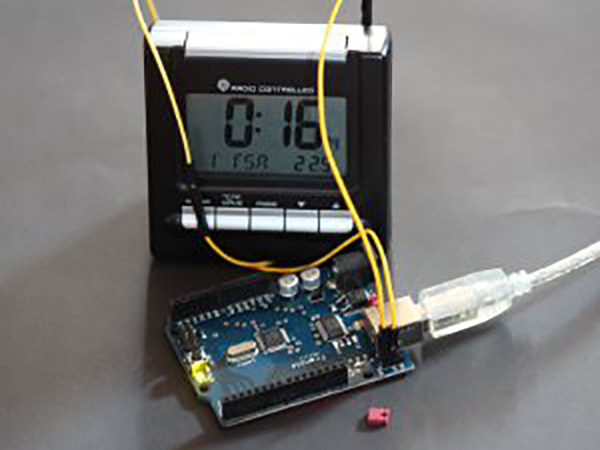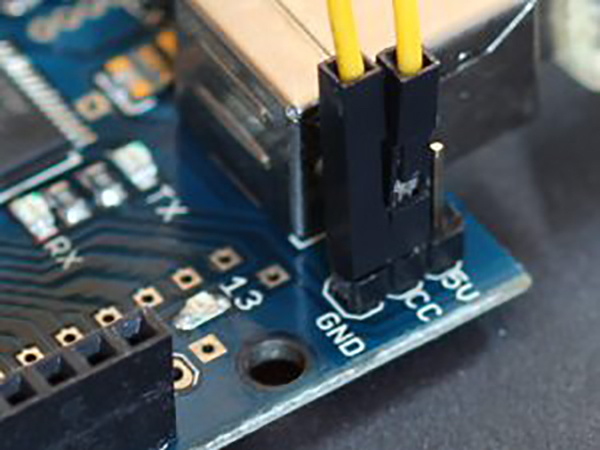
This is one of the simplest arduino based DCF77 generator. This DIY allows the user to set desirable time for any DCF77 clock.
The framework consists of only a wire soldered to a 1k resistor. The aim is to strap the wire around the DCF77 clock. What this does is that the signal is inductively coupled into the clock’s receiving antenna. This creates a reliable 77.5 kHz carrier. The maker is not concerned much about the crystal accuracy because a deviation of 100ppm results in a frequency error of only 7.5 Hz.

One of the issues however for the maker was modulating the carrier. Switching resistors in series with the antenna and bypassing them did not bear fruits. Then it was realized that controlling the amplitude of the signal is not as critical as the incoming power to the output, and hence pulse-width-modulation would be effective. The theory did work. Check out the arduino sketch and circuit diagrams for more details – this is a good student project.
Filed Under: Reviews


Questions related to this article?
👉Ask and discuss on EDAboard.com and Electro-Tech-Online.com forums.
Tell Us What You Think!!
You must be logged in to post a comment.